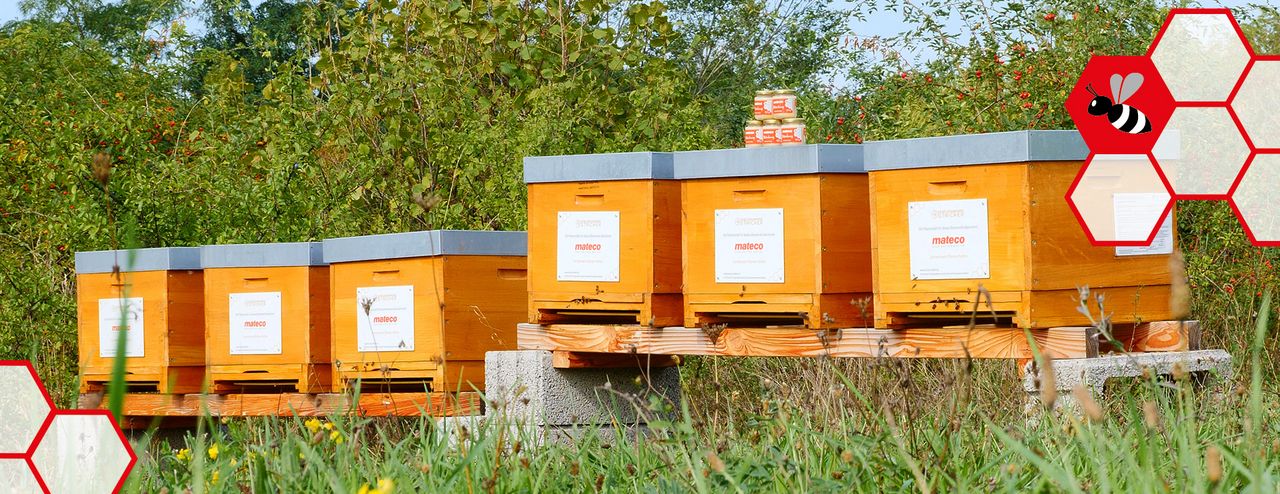Bee sponsorship
30,000 busy bees for our company

Don't worry, bee happy!
By taking on a sponsorship for six newly established bee colonies, we will have around 30,000 new employees at our disposal since May 2022, who are working every day to ensure a future worth living on our planet. After all, through their tireless pollination mission, bees make a direct contribution to biodiversity and thus play a crucial role in our ecosystem. The sweet result of our bee sponsorship is also something to behold (and, above all, taste): Delicious honey, produced by our mateco bees.
Our bees
The six colonies of our mateco bees, which currently consist of about 5,000 bees each, were established in a sustainable process as offshoots of existing commercial colonies and are each ruled by a young queen. An area of around 20 hectares near our company headquarters in Leonberg was chosen as the location for our colonies, where our bees live and work amid wildflower meadows and intact nature. Their supply of plenty of nectar and valuable pollen is thus assured.
By the way, the mateco bees are Ligustica bees, which collect a lot of nectar and are optimally adapted to our conditions.
Strong partnership
The well-being of our mateco bees is our top priority. Therefore, we have a strong and experienced partner at our side in the family beekeeping company Stricker, which shares this philosophy with us and cares for our bees with heart and soul. Since 2011, the family-run beekeeping company has stood for a particularly natural and nature-friendly approach to honey bees, which is why the organic standards are also exceeded in most aspects of the husbandry of our mateco bees.
So that our busy little bees nevertheless know for whom they are actually working, each beehive is marked with our company logo.
Goal of our bee sponsorship
Our goal is to sustainably increase the bee population and thus contribute to a higher pollination performance. After all, it is only through industrious and useful honeybees that biodiversity can be preserved for future generations.





